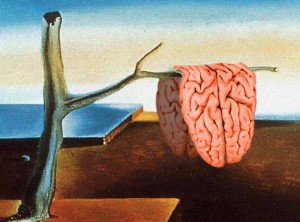This year’s Annual Conference of the American Psychology Law Society (Division 41 of the American Psychological Association) was held in Portland, Oregon, a fortuitously appropriate location for the ongoing debate about how to diminish problems associated with eyewitness testimony.
Recently, the Oregon Supreme Court issued an important decision, in State of Oregon v. Lawson (2012), about procedures for managing potentially unreliable eyewitness testimony; the decision was Oregon’s answer to another groundbreaking case, State of New Jersey v. Henderson (2011).
In the Henderson case, which CLBB faculty member Dr. Daniel Schacter, Professor of Psychology at Harvard University and a leading researcher on memory, discussed at CLBB’s recent event “Memory in the Courtroom: Fixed, Fallible, or Fleeting?”, the court reviewed extensive scientific research and heard expert testimony from eyewitness researchers about empirically identified problems in memory encoding, memory recall, and factors that can and cannot be controlled by investigators to minimize bias and error (e.g., length of time between the crime and witness interview, visibility at the scene of the crime).




